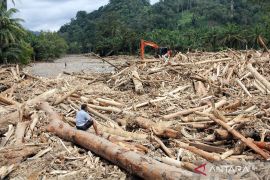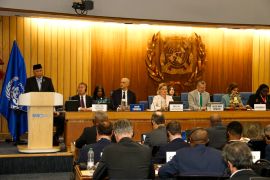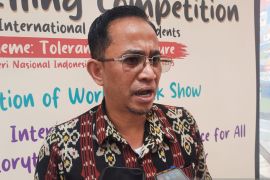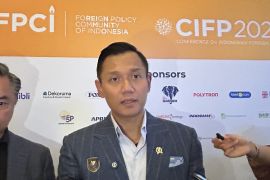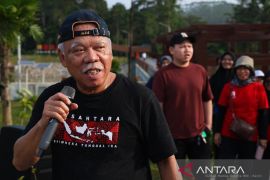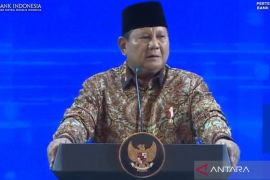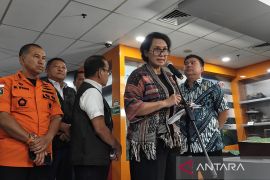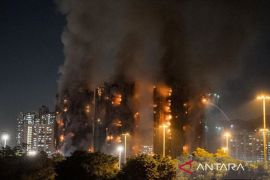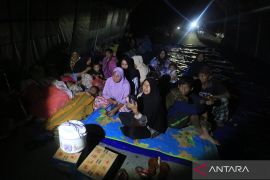The symposium was held on the sidelines of the 72nd United Nations (UN) General Assembly in New York, Thursday.
The Trygve Lie Annual Symposium on Fundamental Freedom was held at the UN Plaza and was the outcome of cooperation between the IPI and the Norwegian Ministry of Foreign Affairs, which was initiated in 2008.
While addressing the symposium participants from various international communities, Marsudi stated that Indonesia was the worlds largest Muslim-majority country, in which 85 percent of the total population of 260 million had converted to Islam.
Indonesia is also home to people of different religious faiths, including Christianity, Catholicism, Hinduism, Buddhism, and Confucianism.
"Tolerance has kept Indonesia united as a country. Hence, our efforts to protect the right to freedom of religion and peace must go hand-in-hand with our priority to maintain tolerance," Marsudi emphasized.
The minister believed that encouraging the spirit of tolerance as well as freedom of religion and belief was an effective strategy to countering extremism in the name of religion.
"Religious extremists have misinterpreted religion to justify their inhumane policies," she stated.
The humanitarian crisis in Rakhine State, Myanmar, was one of the issues raised during the symposium.
Norwegian Foreign Affairs Minister Borge Brende, who was also a speaker at the event, underlined that the Rohingya are not an ethnic majority in Myanmar but an important ethnic group for the global community.
The UN believes the Rohingya Muslims are one of the most persecuted ethnic minority groups in the world.
Brende said human rights are universal, and it is impossible to separate their right to freedom of religion or belief from the most fundamental civil and political rights, including the rights to life, privacy, and freedom of assembly and expression.
"Collective religious hatred is not a natural phenomenon, but it is caused by human action. We cannot allow it to continue, and it is our moral duty to work to find a solution," he stated.
During the symposium, IPI President Terje Rod-Larsen called on Marsudi to share the findings of her diplomatic trips to Myanmar and Bangladesh on the humanitarian crisis in Rakhine.
"I call it a marathon of diplomacy," Marsudi noted.
On Sept 3-5, Marsudi had flown to Myanmar to meet the countrys military chief and state advisor, several ministers, UN representatives, and the ambassador in Yangoon and Naypyidaw.
During a meeting with State Counsellor of Myanmar Aung San Suu Kyi, Marsudi proposed the 4+1 formula to resolve the crisis in Rakhine State.
The four elements of the formula comprise restoring stability and security, maximizing self-restraint and no use of force, protecting all citizens of Myanmar regardless of ethnicity and religion, as well as the importance of opening immediate access for humanitarian assistance.
Marsudi said it would be the responsibility of the government of Myanmar to implement the four elements of the formula.
Meanwhile, the one plus element aims to immediately implement the recommendations of the Advisory Commission on Rakhine State led by former UN secretary general Kofi Annan.
"What the international community can do is to provide humanitarian assistance and implement Annans report," she remarked.
Marsudi thereafter continued her trip to Dhaka, Bangladesh, to meet the Bangladeshi foreign affairs minister, the United Nations High Commissioner for Refugees, and International Organization for Migration to provide information on the evolving situation of Rohingya refugees on the border of Myanmar and Bangladesh.
The other panelists included United Nations High Commissioner for Human Rights Prince Zeid Raad Al Hussein and Executive Director of the Minority Rights Group Mark Lattimer.(*)
Editor: Heru Purwanto
Copyright © ANTARA 2017
